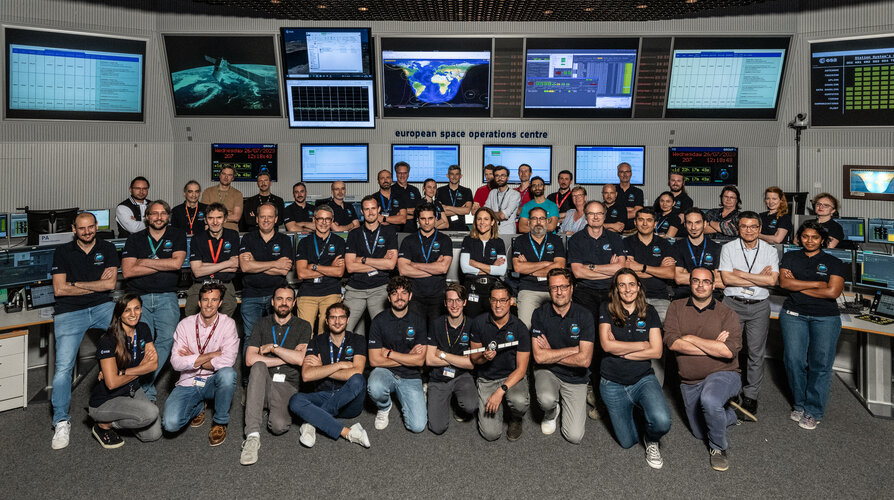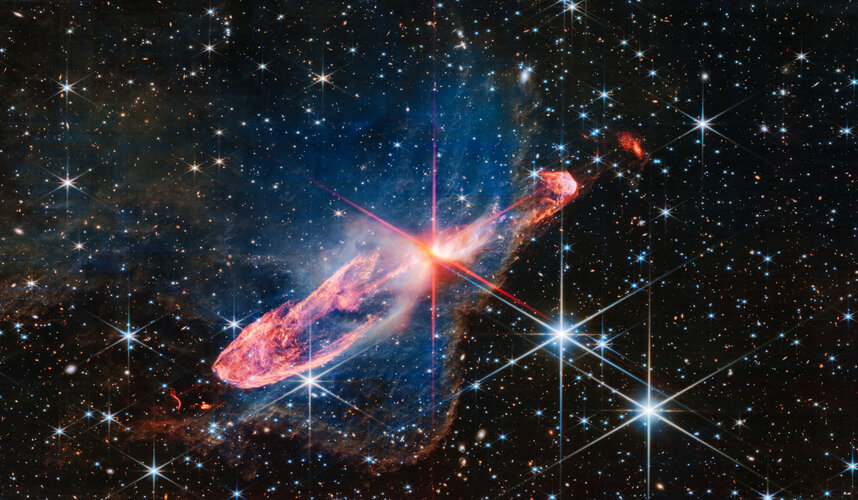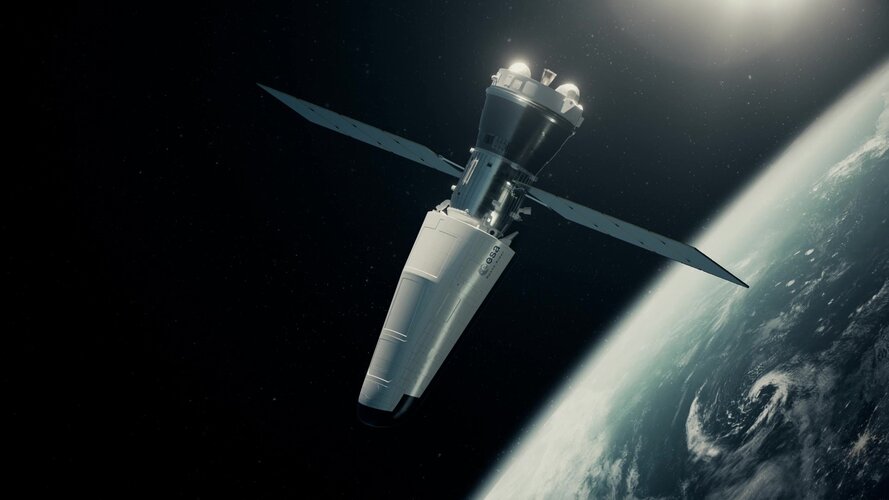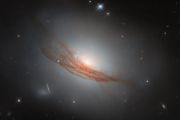
Copernical Team
Aeolus control team wraps up successful reentry operations
 Image:
Aeolus control team wraps up successful reentry operations
Image:
Aeolus control team wraps up successful reentry operations Iridium Board of Directors approves additional share repurchase program
 Iridium Communications Inc. (Nasdaq: IRDM) reported Thursday that its Board of Directors has authorized the repurchase of an additional $400 million of Iridium common stock through December 31, 2025.
This is the third stock repurchase authorization from the Board of Directors in the past three years and brings the total value of the program to $1 billion. This $400 million authorization is
Iridium Communications Inc. (Nasdaq: IRDM) reported Thursday that its Board of Directors has authorized the repurchase of an additional $400 million of Iridium common stock through December 31, 2025.
This is the third stock repurchase authorization from the Board of Directors in the past three years and brings the total value of the program to $1 billion. This $400 million authorization is Beyond Gravity to provide off-the-shelf computer to Quantum Space's Ranger multi-purpose vehicle
 Beyond Gravity, a leading supplier to the space industry, will provide its constellation On Board Computer (cOBC) to Quantum Space's inaugural flight of its Ranger multi-purpose vehicle, which will take payloads to geostationary and cislunar orbits.
Beyond Gravity, a leading supplier to the space industry, has announced it will provide its constellation On Board Computer (cOBC) to Quantum
Beyond Gravity, a leading supplier to the space industry, will provide its constellation On Board Computer (cOBC) to Quantum Space's inaugural flight of its Ranger multi-purpose vehicle, which will take payloads to geostationary and cislunar orbits.
Beyond Gravity, a leading supplier to the space industry, has announced it will provide its constellation On Board Computer (cOBC) to Quantum Historic MWA milestone reached as we go 'back to the future' in the cosmos
 A world-class telescope in outback Western Australia is on the verge of unlocking more secrets from the start of the Universe as new technology upgrades are rolled out during its historic 10-year anniversary. The Murchison Widefield Array (MWA) project, a powerful telescope made up of 8,192 antennas spread across more than 30sqkm on Wajarri Yamatji land, about 300km north-east of Geraldton, is c
A world-class telescope in outback Western Australia is on the verge of unlocking more secrets from the start of the Universe as new technology upgrades are rolled out during its historic 10-year anniversary. The Murchison Widefield Array (MWA) project, a powerful telescope made up of 8,192 antennas spread across more than 30sqkm on Wajarri Yamatji land, about 300km north-east of Geraldton, is c NASA Completes First Launch Simulation for Artemis II Moon Mission
 NASA's Artemis launch team conducted its first simulation for Artemis II, the first crewed mission under Artemis, on July 20 inside the Launch Control Center at the agency's Kennedy Space Center in Florida.
As NASA teams prepare to send the crew of four astronauts on a journey around the Moon and bring them back safely, they will participate in a wide range of simulations to ensure personn
NASA's Artemis launch team conducted its first simulation for Artemis II, the first crewed mission under Artemis, on July 20 inside the Launch Control Center at the agency's Kennedy Space Center in Florida.
As NASA teams prepare to send the crew of four astronauts on a journey around the Moon and bring them back safely, they will participate in a wide range of simulations to ensure personn Sol 3898: A Stop Along the Road
 Earth planning date: Monday July 24, 2023: Today's single sol plan takes us further into our road trip through the Jau crater cluster. Like any road trip, we're taking frequent stops to take in the sights, and at this spot Curiosity gets to stretch its arm with a touch and go. It reminds me of being on family road trips with my geologist father - we were always pulling over to look at cool rocks
Earth planning date: Monday July 24, 2023: Today's single sol plan takes us further into our road trip through the Jau crater cluster. Like any road trip, we're taking frequent stops to take in the sights, and at this spot Curiosity gets to stretch its arm with a touch and go. It reminds me of being on family road trips with my geologist father - we were always pulling over to look at cool rocks NASA Partners with American Companies on Key Moon, Exploration Tech
 NASA has selected 11 U.S. companies to develop technologies that could support long-term exploration on the Moon and in space for the benefit of all. The technologies range from lunar surface power systems to tools for in-space 3D printing, which will expand industry capabilities for a sustained human presence on the Moon through Artemis, as well as other NASA, government, and commercial mission
NASA has selected 11 U.S. companies to develop technologies that could support long-term exploration on the Moon and in space for the benefit of all. The technologies range from lunar surface power systems to tools for in-space 3D printing, which will expand industry capabilities for a sustained human presence on the Moon through Artemis, as well as other NASA, government, and commercial mission Webb and Gaia welcome Euclid to L2
 Video:
00:01:47
Video:
00:01:47
In the month after its launch on 1 July, Euclid has travelled 1.5 million kilometres from Earth towards the Sun-Earth Lagrange point L2, meaning it has ‘arrived’ at its destination orbit.
This animation showcases the orbits of Euclid (green), the James Webb Space Telescope (blue), and the Gaia mission (yellow) around this unique position in space. The positions of the spacecraft in this animation don’t correspond to their current positions in space.
Located about 1.5 million kilometres from Earth in the opposite direction from the Sun, L2 is about four times further away than our Moon. Several other space missions
Week in images: 24-28 July 2023

Week in images: 24-28 July 2023
Discover our week through the lens

































